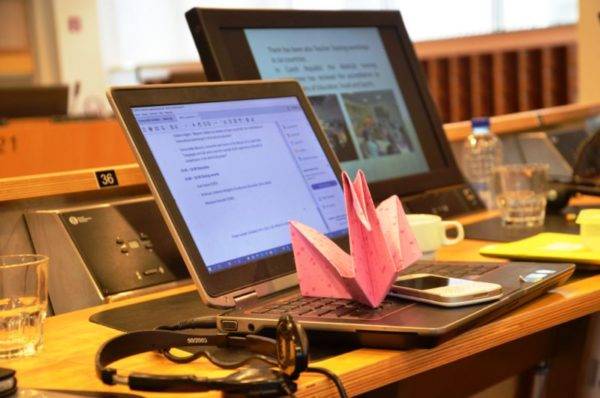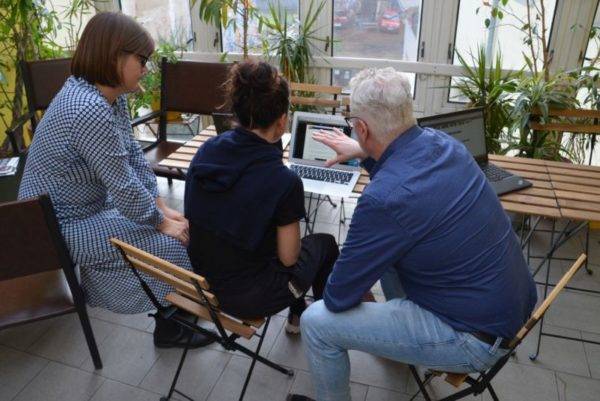UPSIM
How can foreigners and migrants be helped in their migration and integration? It is this question that Pelican is talking about in the new UPSIM project (Upskilling Paths for Social Integration of Migrants). Together with partners from four other European countries, they aim to answer this question and act on it.

Foreigners and Migrants as the most vulnerable group.
Leaving one’s home country and migrating to another presents many advantages – a fresh start, a better chance of employment as well as greater self-confidence and independence. However, migrants also face multiple risks, especially women.
The UPSIM project focuses on newcomers as well as foreign women who already live in the countries of the European Union. This is the group that faces numerous obstacles in social integration and is often the most vulnerable. These obstacles revolve around the specific location of migrants and foreigners in new countries and the various cultural, racial or gender prejudices that women face. As a result of these difficulties, foreign women are often presented with lower socioeconomic status and subsequently, that prevents them from getting an education or work and therefore a better standard of living.
This project aims to support migrant women in their right to education, regardless of the expectations or restrictions imposed on them by the surrounding community.

Web-based learning platform
The specific aim is for the project leaders will create a web-based learning platform, where new members and foreigners can find various tools to acquire or deepen the language skills needed to further their education.
Similarly, the ability to make good use of acquired skills and knowledge will be included. Learning the language of the host country will not be left to the passive influx, rather the creators will provide women with interactive tools that will help them practice their knowledge. This is a presentation of strategies that will help women learn effectively.
Manual for working with foreigners
The second, although no less important, group targeted by the project are those who work with migrants. Whether they are professionals or volunteers. One of the outputs of the project is therefore a didactic manual, which serves as a supporting guide for working with newcomers and foreigners. The manual will also offer practical examples of solving problems and situations so that their integration is as successful as possible.

Project Outputs
So what are the main outputs of the project? Let’s summarise the main points:
- A
conceptual framework of all the important data,
particularly the data on migrant and foreign women, as well as those who work
with them. By examining thoroughly what newcomer women are facing, it will
allow us to work with them on a more personal and effective basis - Didactic
manual for successful integration – based on the
previous point, we will prepare a didactic manual, which is there to serve
volunteers and professionals as support material or working with newcomers and
foreigners. - Learning
to learn tools, or how to learn to learn? Through this
material, the authors will introduce migrant women to effective strategies for
learning more than just language. It is a matter of providing access to
education and the rapid comprehension of the language of the host country. - An
educational web platform that will be designed to
introduce migrant and foreign women to learning tools, useful resources and
other project materials.
Project Partners
PELICAN is cooperating on this project with various institutions from four other European countries – Denmark, Sweden, Portugal and France. The project involves partners from various, yet interconnected industries. Therefore, it can benefit from the diversity of specializations, cultures and educational systems or individual countries. The partners are as follows:
- Internationella Kvinnoföreningen (Sweden) is the project coordinator. It is a non-profit organization with a 50-year tradition of working with migrant women in the Öresund region.
- Coneqt (Denmark) is an organization that provides consultations to the education sector and develops teaching materials for online platforms.
- Aidlearn, Consultoria em Recursos Humanos Lda.(Portugal) is a training organization that helps Portuguese organizations improve HR management.
- Municipality of Saint françois (France, Guadeloupe). The city of Saint François provides its citizens with a variety of interconnected services that enable them to prosper in a sustainable and productive environment.

